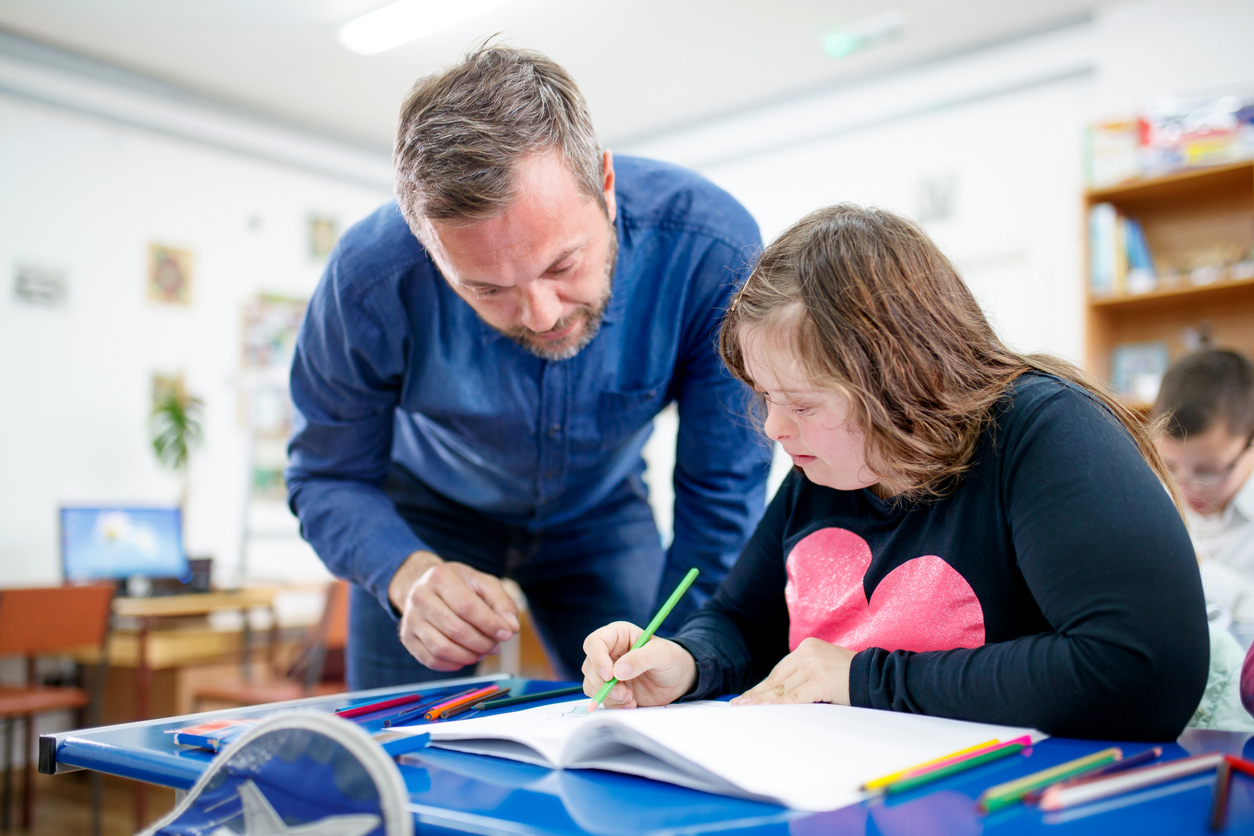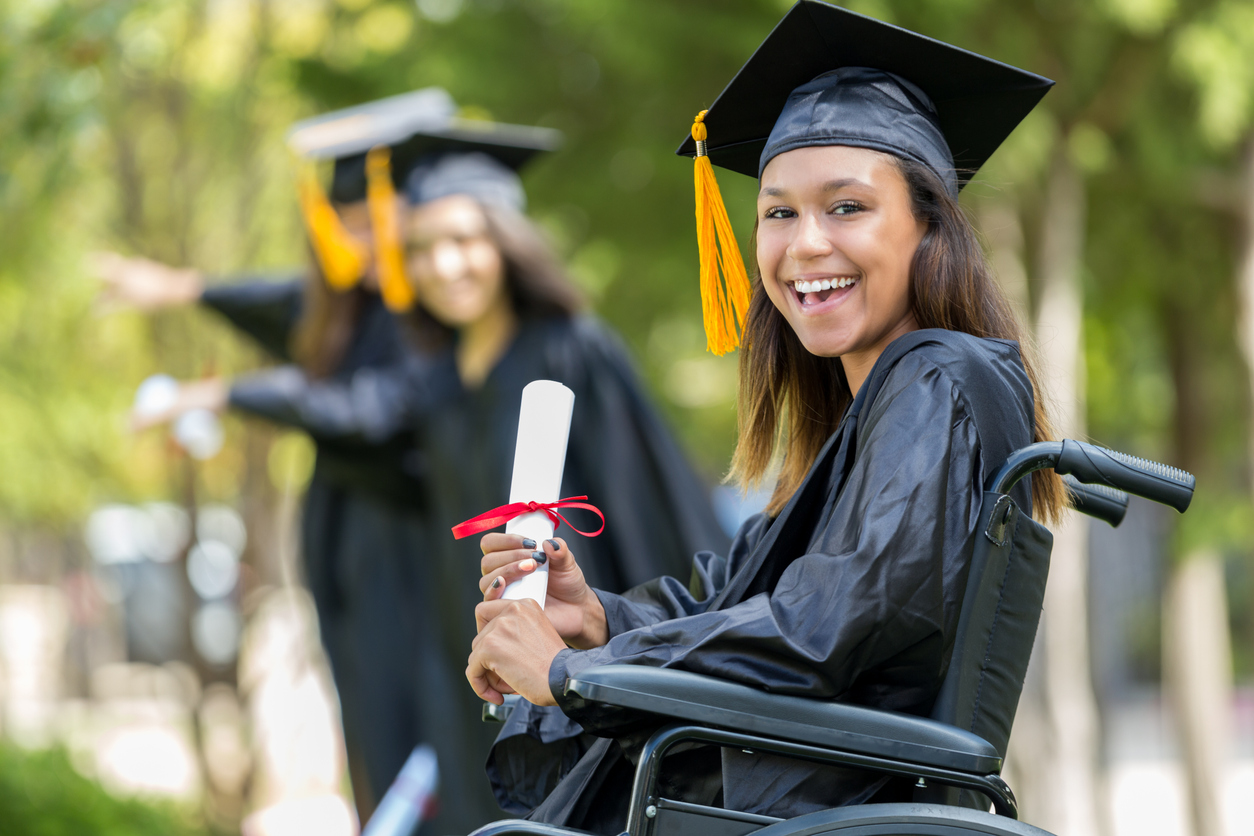2 min read
Should You Still Consider Higher Education with a Learning Disorder?
If you have a learning disorder, it may feel discouraging sometimes to think about earning an education. Yet, you know that academics can help to...
2 min read
 Angela Lydon
:
Sep 27, 2023 2:42:21 PM
Angela Lydon
:
Sep 27, 2023 2:42:21 PM
Studies show an estimated 6.5 million people in the United States live with an
intellectual disability or ID. While there are many intellectual disabilities that exist,
they are typically categorized into 4 sections on how they are formed:
-Environmental factors
-Genetics or family history
-Pregnancy complications
-Health issues and conditions
Some common intellectual disabilities include but are not limited to:
-ADHD
-Dyslexia
-Downs Syndrome
-Cerebral Palsy
-Fetal Alcohol Syndrome
How do intellectual disabilities affect education?
Some intellectual disabilities impact different aspects of learning. For example,
Dyslexia will affect someone’s ability to read and write properly, whereas someone
who suffer from Dyscalculia will have difficulty with mathematics and solving
problems. Although there are multiple intellectual disabilities focusing on specific
areas, it is overall more of a challenge for the disabled to get an education.
Disabilities can cause the following in school:
-Difficulty paying attention
-Challenges with learning new concepts
-Difficulty keeping up with homework and assignments
-Inability to stay organized
-Challenges in making friends and social interactions
-Difficulty maintaining sufficient grades and GPA
Once an intellectual disability is identified, it is easier to determine what plan of
action to take to develop their educational experience.
High school courses not only help students learn new things but also provide
preparation for higher education and obtaining a job in a field they will enjoy and
benefit from.
What are some ways to succeed academically with an intellectual
disability?
Fortunately, the education system and healthcare industry have made great
advancements over recent years, providing a better opportunity for the
intellectually disabled. With proper treatments, medical care, and academic
support, getting an effective education with an intellectual disability is possible
and likely. The following are ways to help intellectually disabled individuals or
groups embark on higher education:
-Special Education Programs- Offering additional support and assistance with
coursework
-Awareness- Schools bringing awareness to certain disabilities through their social
media, campuses, and holding events
-Flexibility- Many colleges now offer fully online programs that are not only
convenient but can help immobile individuals get an education from their own
homes without needing to be on campus
-Staff Training-Having some staff trained in specific areas of intellectual
disabilities to assist and offer support in their educational success
-Partnerships- Some colleges or higher education institutions may partner with
certain healthcare facilities and bring awareness to disabilities and be mindful of
specific conditions
-Financial Support- Depending on the school, program, and individual, a person
may receive additional financial assistance to afford their education
Earning an education online is a great way for intellectually disabled individuals to
still be able to interact with other students and professors, but to get an education
on their own time and with no physical demand.
If you or someone you know with an intellectual disability is interested in learning
more about online learning, check out Focus EduSolutions today- We are an online
higher education company helping many students succeed in academics and
prepare for a lucrative career.
References
Peacock, G., MD (2019, October 15). Addressing Gaps in Health Care for
Individuals with Intellectual Disabilities. Centers for Disease Control and
Prevention. Retrieved August 30, 2023, from
(2023). 4 Types of Intellectual Disabilities. EnableMe. Retrieved August 30, 2023,

2 min read
If you have a learning disorder, it may feel discouraging sometimes to think about earning an education. Yet, you know that academics can help to...

2 min read
Did you know that there are millions of people in the United States who have some type of disability? This includes physical, intellectual, or...

2 min read
Did you know that over 42 million Americans suffer from some type of disability or disorder as of 2021? Although employment rates show an increase in...